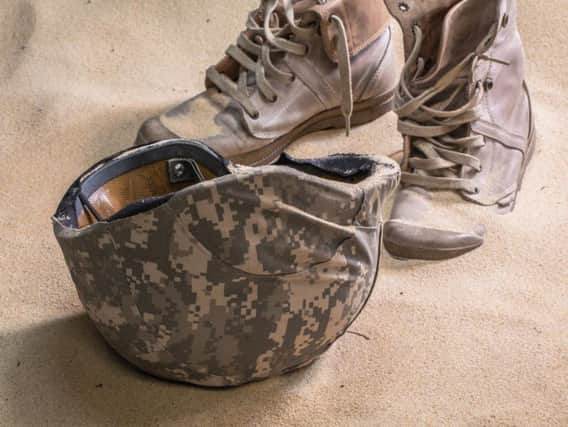Here's what PTSD is and its impact on British veterans explained


PTSD is one of a few mental health conditions where you have to have gone through a specific type of traumatic event to get it.
Often this is where you thought your life or someone else’s life was in danger or at risk of serious injury or attack.
Advertisement
Hide AdAdvertisement
Hide AdCombat Stress, the UK’s leading charity for veterans’ mental health, knows that invisible injuries can be just as hard to cope with as physical ones and their services help veterans cope with the present, tackle the past and take on the future.


Dr Walter Busuttil, consultant psychiatrist and medical director for Combat Stress, says: “The King’s Centre For Military Health Research did a study looking into PTSD and by and large, the rates of PTSD are relatively low for the population who have served in the forces.
“The study found that for those who had served in Afghanistan or Iraq, the rate of PTSD was around four per cent.
Advertisement
Hide AdAdvertisement
Hide Ad“This is the same as for the rest of the military who had not been to these places.


“However, the figures for those who had been in combat showed the rate of PTSD was much higher at 6.9 per cent.
“In America, it is a lot higher and is about 20 per cent.
“The study also showed that the rate for things like alcohol disorders was a lot higher among those deployed to wars in Afghanistan and Iraq at 13 per cent..
“This is compared to a rate of about six per cent in the general population.
Advertisement
Hide AdAdvertisement
Hide Ad“The rates of common mental illness such as anxiety, depression, and adjustment difficulties is also high at 20 per cent.”
Dr Busuttill says the study revealed that those who had been in combat were the most ill and if they were deployed for longer than six months, they were more likely to have a mental breakdown.
Rise in Iraq and Afghanistan veterans coming forward
He says: “This study was last reported in 2010 and it is now 2018 and the next publication is due soon.
“We know at Combat Stress, we have seen a very big rise in people coming forward for help after serving in Iraq and Afghanistan.
Advertisement
Hide AdAdvertisement
Hide Ad“It would be interesting to see in the latest study if the rates of PTSD have gone up and if they are related to how long they were in combat.
“People who come to us have very high rates of PTSD, alcohol problems past and present and depression.
“The ones who are most ill are those who have been in combat. People like the medics and those who fly the helicopters are more prone to the severe end of PTSD and other conditions.”
Delaying seeking help
Dr Busuttil says it can take up to 14 years until a veteran seeks help for PTSD - and reveals Combat Stress is still treating veterans from the Second World War.
Advertisement
Hide AdAdvertisement
Hide AdHe explains: “There is still an issue with stigma within the military but they are trying to overcome it, so it is better.
“For those who served in Iraq and Afghanistan, the time it takes for people to seek help has come down.
“For their era, it has come down to an average of between two and four years before they seek help.
“The reason for this is possibly because of better education and less stigma which is a very positive thing.
Advertisement
Hide AdAdvertisement
Hide Ad“However, if you look at Falklands veterans and those who served in the Gulf War, there is still a significant time of 12, 13 or 14 years before they seek help from us.
“It does take a long time for people with PTSD to seek help. Among the civilian population, it takes an average of 10 years to get help.
“But among our population, around 80 per cent of people have tried to get help from either the MoD or the NHS before coming to Combat Stress.
“For whatever reason, this help has not materialised.”
Symptoms of PTSD
According to the NHS, PTSD symptoms can include:
* Flashbacks
* Nightmares
* Repetitive and distressing images and sensations
* Physical sensations such as pain, sweating, nausea or trembling
* Negative thoughts and feelings of guilt or shame
* Isolating behaviour (emotional numbing)
* Hyperarousal: irritability, angry outbursts, insomnia, concentration problems
* Depression
* Anxiety
* Phobias
* Drug misuse
* Alcohol misuse
* Headaches
* Dizziness
* Chest pains
* Stomach aches